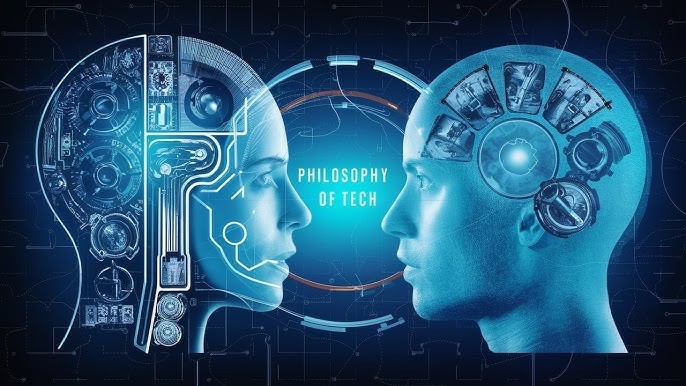In today’s fast-paced, digitally driven world, it’s easy to wonder whether technology is slowly eroding the very qualities that make us human. With smartphones constantly in our hands, algorithms shaping what we see, and artificial intelligence increasingly taking over tasks once thought to require a human touch, the question arises: Is technology making us less human? This concern isn’t new, but it has grown more urgent as technology becomes ever more intertwined with our daily lives. To explore this, we need to consider not only the challenges technology poses but also the ways it enhances our humanity.
Technology, by its nature, is a tool — a means to extend our capabilities beyond natural limits. From the invention of the wheel to the rise of the internet, technology has propelled human progress. However, unlike earlier inventions, modern digital technologies operate at a scale and speed that profoundly influence how we communicate, think, and relate to one another. For example, social media platforms, which promise connection, sometimes foster superficial interactions rather than deep relationships. When conversations are distilled into likes and emojis, it can feel as though we are losing something essential: the nuance, empathy, and patience that characterize genuine human connection.
But does this mean we are becoming less human? The answer is more complex. Humans are adaptive creatures, capable of reshaping their environments and themselves. Technology reflects this adaptability — it changes us, but it does not necessarily diminish our humanity. Consider how smartphones, despite criticism for distraction and isolation, have also empowered people to organize social movements, maintain relationships across vast distances, and access information in unprecedented ways. During crises, such as natural disasters or pandemics, technology becomes a lifeline, enabling rapid communication and resource coordination. This duality shows that technology can both challenge and enrich human experiences.
One dimension worth examining is empathy. Critics argue that technology fosters a more detached society, where screens separate us from face-to-face encounters. This detachment can dull emotional intelligence, especially among younger generations who have grown up with digital communication as the norm. Yet, technology can also cultivate empathy by exposing us to diverse perspectives and stories from around the world. Documentaries streamed online, virtual reality experiences, and interactive storytelling immerse us in lives far different from our own. These tools have the potential to deepen understanding and compassion, demonstrating that technology’s impact on empathy depends largely on how we choose to engage with it.
Moreover, the rise of artificial intelligence and automation raises profound questions about what it means to be human. As machines become capable of performing tasks like language translation, medical diagnosis, or even creative writing, we face a new challenge: distinguishing human uniqueness. However, this shift can be seen not as a loss but as an opportunity to focus on what machines cannot replicate easily — our creativity, intuition, moral judgment, and emotional depth. In workplaces increasingly augmented by AI, humans are freed from repetitive tasks and invited to concentrate on innovation and interpersonal skills. This transition might redefine our roles rather than erase our humanity.
It’s also important to consider the psychological effects of living in a hyperconnected, tech-driven world. Constant notifications, information overload, and the pressure to maintain curated online personas can lead to stress and anxiety, potentially eroding mental well-being. Yet, technology also offers solutions — mindfulness apps, online therapy, and digital communities provide support to many who might otherwise feel isolated. The key lies in balance and intentional use, underscoring that technology is neither inherently harmful nor inherently beneficial; it is a reflection of human choices and values.
In business contexts, technology reshapes how we work and collaborate, raising questions about human connection in professional environments. Remote work, enabled by video conferencing and cloud tools, allows greater flexibility but can also challenge the spontaneous interactions and rapport-building that happen in physical offices. Leaders and organizations now face the task of fostering culture and empathy through digital means. Successful businesses recognize that technology must serve people, not replace them, by enhancing communication and empowering employees rather than simply automating tasks.
Ultimately, the question of whether technology is making us less human cannot be answered with a simple yes or no. Instead, it invites ongoing reflection on how we integrate technology into our lives. If we allow technology to dictate our behaviors passively, to replace genuine interactions, or to overwhelm our mental bandwidth, we risk losing touch with core human qualities. On the other hand, if we approach technology thoughtfully, using it to connect, learn, and create, it can amplify what makes us truly human.
In this light, technology is less a threat to our humanity and more a mirror reflecting how we choose to live and relate to one another. It challenges us to be more intentional, to cultivate empathy beyond digital screens, and to harness innovation in ways that uplift rather than diminish human experience. Far from making us less human, technology can be a catalyst for deeper understanding and richer connections — if we remain mindful stewards of its power. The future will not be shaped by technology alone but by the values and choices we bring to it.




